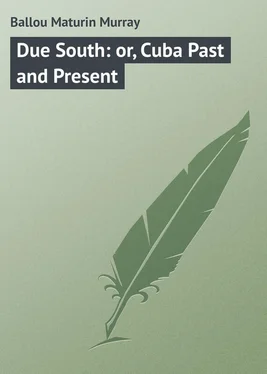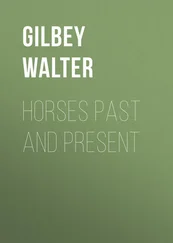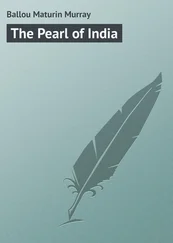Maturin Ballou - Due South - or, Cuba Past and Present
Здесь есть возможность читать онлайн «Maturin Ballou - Due South - or, Cuba Past and Present» — ознакомительный отрывок электронной книги совершенно бесплатно, а после прочтения отрывка купить полную версию. В некоторых случаях можно слушать аудио, скачать через торрент в формате fb2 и присутствует краткое содержание. ISBN: , Жанр: foreign_prose, на английском языке. Описание произведения, (предисловие) а так же отзывы посетителей доступны на портале библиотеки ЛибКат.
- Название:Due South: or, Cuba Past and Present
- Автор:
- Жанр:
- Год:неизвестен
- ISBN:http://www.gutenberg.org/ebooks/30130
- Рейтинг книги:4 / 5. Голосов: 1
-
Избранное:Добавить в избранное
- Отзывы:
-
Ваша оценка:
- 80
- 1
- 2
- 3
- 4
- 5
Due South: or, Cuba Past and Present: краткое содержание, описание и аннотация
Предлагаем к чтению аннотацию, описание, краткое содержание или предисловие (зависит от того, что написал сам автор книги «Due South: or, Cuba Past and Present»). Если вы не нашли необходимую информацию о книге — напишите в комментариях, мы постараемся отыскать её.
Due South: or, Cuba Past and Present — читать онлайн ознакомительный отрывок
Ниже представлен текст книги, разбитый по страницам. Система сохранения места последней прочитанной страницы, позволяет с удобством читать онлайн бесплатно книгу «Due South: or, Cuba Past and Present», без необходимости каждый раз заново искать на чём Вы остановились. Поставьте закладку, и сможете в любой момент перейти на страницу, на которой закончили чтение.
Интервал:
Закладка:
The head of the Church of Rome in Cuba is located here, it being an archbishop's see; and the elaborate ceremonials which occasionally take place attract people from the most distant cities of the island. We chanced to be present when the bishop was passing into the cathedral, clothed in full canonicals and accompanied by church dignitaries bearing a canopy above his head. Observing our little party as strangers, though in the midst of a stately ceremony, the bishop graciously made us a sign of recognition. The cathedral of Santiago is the largest in Cuba, but extremely simple in its interior arrangements; and so, indeed, are all the churches on the island. As to the exterior, the façade resembles the cathedral of Havana, being of the same porous stone, which always presents a crumbled and mottled surface. The inside decorations are childish and fanciful, consisting mostly of artificial flowers of colored paper, crudely formed by inexperienced hands into stars, wreaths, and crosses. One innovation was noticed in this church: a saint on the right of the altar was mounted upon a wooden horse, with spear in rest à la militaire, forming a most incongruous figure. In the church of Matanzas, visited a week or two later, the effigy of our Saviour was observed to be half dressed in female attire, a glaring absurdity which the author has once before seen in the Spanish convent-church of Burgos. In the Matanzas church alluded to, boys and girls of nine and ten years were seen at the confessional. Could absurdity be carried to a greater height? These with negro women form nearly all the audiences to be met with in the Cuban churches, unless upon festal occasions. The men manifest their indifference by their absence, and white women are scarcely represented. Besides the cathedral, Santiago has three or four other old churches, small and dilapidated, within whose sombre walls one seems to have stepped back into the fifteenth century. Upon strolling accidentally into one of these we felt a chill suffuse the whole system, like that realized on descending into a dark, undrained cellar.
The multiplicity and gaudiness of the drinking-saloons and bar-rooms were particularly noticeable in passing along the principal streets, and all were doing a thriving business, judging from appearances. The Cubans drink lightly, but they drink often, and are especially addicted to gin, which is dealt out to them at an extraordinarily low price. It appears that people can consume a much larger quantity of spirituous liquors here without becoming intoxicated than they can do at the North. It is very rare to see a person overcome by this indulgence in Cuba, and yet, as was afterwards observed in Cienfuegos, Matanzas, and Havana, the common people begin the day with a very liberal dram, and follow it up with frequent libations until bed-time, – tippling at every convenient opportunity. A few of the better class of private houses were constructed with courts in the centre, where flowers and tropical fruits were growing luxuriantly. These dwellings were confined to no special quarter of the town, but were as often found next to a commercial warehouse or a negro shanty as elsewhere. The dogs, horses, and Chinese coolies were all in wretched condition. One might count the ribs of the first two a long way off, while the latter were ragged, lame, half-starved, and many of them blind. Animals are the recipients of the severest sort of usage both in Cuba and Spain. Few vehicles were to be seen, as merchandise is mostly transported on the backs of mules and ponies, and these animals are seldom shod.
The town is lighted with gas, or rather it was so illuminated a few weeks since; but it was quietly whispered about that the corporation had failed to pay for this service last year, and that the monopoly itself was on the verge of bankruptcy, like nearly everything else of a business character in Cuba. The gaslights certainly appeared pale and sickly enough, as though only half confirmed in the purpose of giving any light at all, and were prematurely extinguished in many of the streets. In the shops, whose fronts were all open, like those of Canton and Yokohama, the clerks were to be seen in their shirt sleeves, guiltless of vests or collars, coquetting over calicoes and gaudy-colored merinos with mulatto girls decked in cheap jewelry, and with negresses wearing enormous hoop-earrings. At the approach of evening the bar-rooms and saloons, with a liberal display of looking-glasses, bottles of colored liquors, gin, and glitter, were dazzling to behold. The marble tables were crowded with domino and card players, each sipping at intervals his favorite tipple. The sidewalks are so narrow that the pedestrian naturally seeks the middle of the street as a pathway, and the half a dozen victorias and four volantes which form the means of transportation in Santiago, and which are constantly wandering about in search of a job, manage to meet or to overtake one perpetually; causing first a right oblique, then a left oblique, movement, with such regularity as to amount to an endless zig-zag. We did not exactly appreciate the humor of this annoyance, but perhaps the drivers did. After climbing and descending these narrow, dirty streets by daylight and by gaslight, and watching the local characteristics for a few hours, one is only too happy to take a boat back to the ship, and leave all behind.
A desire for a cold bath and a good swim is natural in this climate after sunset, but beware of indulging this inclination in the waters of Santiago. Under that smooth, inviting surface, glistening beneath the rays of a full moon, lurk myriads of sharks. They are large, hungry, man-eating creatures, the tigers of the ocean, and the dread of all local boatmen here. To fall overboard in these waters, however good a swimmer one may be, is simply to be devoured. At Singapore, Sumatra, or Batavia, a Malay will for a consideration dive into the waters of the Malacca Straits, armed with a long, sharp knife, boldly attack a shark, and rip open his bowels at the moment when he turns on his side to give the deadly bite. But on that coast this dreaded fish appears singly; it is rare to see two of them together; while Santiago harbor seems to swarm with them, the dark dorsal fin of the threatening creatures just parting the surface of the sea, and betraying their presence. Lying at anchor between our ship and the shore was a trig Spanish corvette, – an American-built vessel, by the way, though belonging to the navy of Spain. It was curious at times to watch her crew being drilled in various martial manœuvres. While an officer was exercising the men at furling topsails, a few days before our arrival, a foretopman fell from aloft into the sea. Under ordinary circumstances and in most waters, the man could easily have been saved, but not so in this instance. He did not even rise to the surface. A struggle for portions of his body between half a dozen ravenous sharks was observed alongside the corvette, and all was quickly over. The foretopman had been torn limb from limb and instantly devoured.
The over-stimulated brain felt no inclination for sleep on this first night in the harbor, the situation was so novel, and the night itself one to suggest poetic thoughts. The moon was creeping slowly across the blue vault, like a great phantom mingling with the lambent purity of the stars. We sat silently watching the heavens, the water, and the shore; saw the lights go out one after another among the clustering dwellings, and the street gas-burners shut off here and there, until by and by the drowsy town was wrapped in almost perfect darkness. Only the ripple of the sea alongside the ship broke the silence, or the sudden splash of some large fish, leaping out of and falling back into the water. It seemed as though no sky was ever before of such marvelous blue depth, no water so full of mystery, no shore so clad in magic verdure, and no night ever of such resplendent clearness. The landing-steps and grating had been rigged out from a broad porthole on the spar deck, where a quartermaster was awaiting the return of the purser and a party of gentlemen who were making late, or rather early, hours on shore; for it was nearly two o'clock in the morning, and the weary seaman, who had sat down at his post on the grating, was snoring like a wheezy trombone. The measured tread fore and aft of the second officer, who kept the anchor watch, was the only evidence of wakefulness that disturbed our lonely mood. A similar night scene was vividly called to mind as experienced in Typhoon Bay, below Hong Kong, a few years since.
Читать дальшеИнтервал:
Закладка:
Похожие книги на «Due South: or, Cuba Past and Present»
Представляем Вашему вниманию похожие книги на «Due South: or, Cuba Past and Present» списком для выбора. Мы отобрали схожую по названию и смыслу литературу в надежде предоставить читателям больше вариантов отыскать новые, интересные, ещё непрочитанные произведения.
Обсуждение, отзывы о книге «Due South: or, Cuba Past and Present» и просто собственные мнения читателей. Оставьте ваши комментарии, напишите, что Вы думаете о произведении, его смысле или главных героях. Укажите что конкретно понравилось, а что нет, и почему Вы так считаете.












